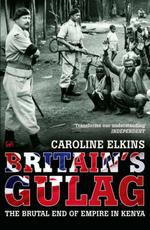Georgia invades breakaway region of South Ossetia, Russia responds by sending troops to defend it, with all the danger of turning this into a fullscale war between Georgia and Russia. Der Spiegel has the best coverage in English that I’ve seen, while the main Georgian English language news service Civil.ge, which was up earlier today now seems to have been slashdotted.
Tensions had been high for a while, with the root of the conflict going back to the last days of the Soviet Union, when newly resurgant Georgian nationalism met head to head with its Ossentian counterpart. Russia helped end the war that started when the USSR collapsed completely and has since made South Ossetia into a protectorate, providing most of the population with Russian passports. For Russia, separatist regions like this and Abkhazia have always been a way to keep a hand in its “Near Abroad”, but it also has an interest because of its own North Ossetia, which you might remember from the school siege of Breslan.
Now this socalled “frozen conflict” has occasionally erupting into open violence again but never as bad as today. This time it looks like it’s becoming a real shooting war between Georgia and Russia. But why now? Tensions had been ratcheting up in the past year, with various incidents including alleged Russian incursions of Georgian airspace, as well as Georgian attacks on South Ossetian targets and Ossetian attacks on Georgian soil. Then again, these things have all happened before and never degenerated as fast as this time.
Now Georgia’s president, Mikhail Saakashvili, came to power in one of those coloured revolutions that are usually massively backed by the CIA and western business interests like George Soros. Which meant the US got an important new ally, who showed his gratitude by sending 2,000 Georgian troops to Iraq, half of which he now wants back to stop the “Russian aggression”, but that’s of lesser concern. What was important that with Georgia being pro-western, Caspian Sea oil could now be transported through a brand spanking new pipeline to Europe, without the Russians having the ability to shut down the tap. In return for this Georgia got a lot of American assistance in rebuilding its army. Thanks to this support Saakashvili has already manage to force one breakaway region, Adzharia, back into Georgia properly and while America probably isn’t keen to see its puppet engage in a shooting war with Russia, it must’ve known something was up and if not given its blessing, at least agreed to look the other way.
From what I can make out, Georgia is clearly the aggressor here, having been largely responsible for creating much of the tension in the first place, than used this as an excuse to invade South Ossetia proper. With Russia taking the bait and coming to the Ossetians’ aid, Saakashvili now can portray his country as the victim of Russian aggression and because the west is predisposed to believe the worst about post-Putin Russia anyway, he may get away with this. On the other hand, if Russia gets too riled, he may have bitten off a lot more than he could chew.
It will be …interesting… to see how our great leaders deal with this crisis. Since they gave Kosovo the right to secede from Serbia, they can hardly deny South Ossetia the same right, can they?
